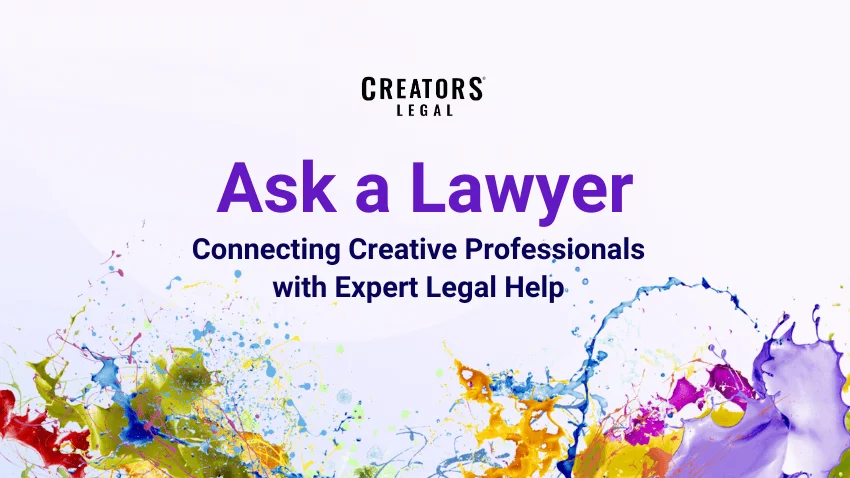You can make digital media and reach a global audience just with a Smartphone and an internet connection. Anyone who can create music, video, text, or images can become a content creator and start their own media empire.
While it may not appear to be a significant development, the democratization of distribution is significant for creators. Until recently, transmitting any information required the use of middlemen.
You may now develop media assets and discover an audience interested in consuming them through numerous marketing methods without spending a dime. So why do only a few content creators seem to dominate the roost? Google, for example, sends zero traffic to almost 90% of the internet’s pages!
You might be wondering who a real content creator is. What does it take to be an effective content creator, though? How do I establish myself as a resource for advice and ideas among my rivals in my field? For that, we have researched and written this blog. This blog covers the following topics:
- #1 What is a content creator
- #2 What does a content creator do?
- #3 8 ways to become a content creator
- #4 How can we help?
What Is A Content Creator?
Content creators are in charge of coming up with fresh content concepts and seeing them through to completion. Whether you’re working on digital or traditional products, the content creation process normally involves several processes.
This content is usually either informative or amusing, and it is created to appeal to the business’s target demographic. A social media content creator, for example, spends the majority of their time researching hashtags and audiences, developing photo or video content to upload, and evaluating campaign reports to assess success. These creators are sometimes referred to as “influencers” because they typically have huge social media followings and will collaborate with marketers on sponsored content, boosting firms to their followers. Social media artists operate on a few platforms, and material is developed expressly for each one to appeal to its target audience.
Also Explore: The Content Creator’s Guide to Non-disclosure Agreements, Part 1
The majority of social media influencers are celebrities, but many people have built a reputation for themselves online and amassed large followers. Kylie Jenner, Huda Kattan, Khaby Lame, and Eleonora Pons are just a few examples of digital influencers that have amassed millions of followers and are in high demand by companies, charging five figures for a single brand post on their channels.

Influencers aren’t the only ones who create social media content. Sometimes, people would work as social media managers, which entails creating content on behalf of a company, posting it to its channel, and monitoring and responding to comments. Businesses also hire freelance videographers, photographers, and copywriters as content providers because they do not usually have in-house.
What Does A Content Creator Do?
What exactly does a content creator’s job description entail? Well, that is debatable.
Creators work on various digital platforms, ranging from YouTube and Instagram to company blogs, Medium, Spotify, and more, so what each person does will differ depending on the demands of the organization they work for and the sort of media they use.
Before creating their content, bloggers and writers will spend a significant amount of time researching. Looking for related information online, obtaining data or products to mention in the piece, or interviewing experts for quotes are all examples of this. The work may merely require creating the original piece, depending on how active the brand wants a creative to be; for others, editing and posting on the company’s blog or Medium account may also be part of the contract.
Long-form, blog-style pieces aren’t the only type of written content that can be created. Even social media creators create written content in the form of captions for their posts, digital adverts, and videos to accompany any visuals presented.
Video is also a very popular form of content. Videographers devote a significant amount of effort to arranging video projects, from scouting actors and locations to developing storyboards and scripts. In fact, the majority of their work occurs before and after the shoot, as editing can take equally as long as preparation.
Also Explore: The Content Creator’s Guide to Non-disclosure Agreements, Part 2
8 Ways To Become A Content Creator
#1 Checking on updates related to your industry
Understanding what’s going on in your sector is important to create exciting content that genuinely matches your target audience. And the polished content creators look up the internet for the news and trends related to their industry, not just read them. This provides them a superior position to understand the background about the change in their sector. Plus, it also gives them know-how that has outlined the mindset of their target people in the present.
Put everything you read in one location to get into the habit of reading. Also, find out what a couple of your coworkers are reading these days and follow their lead. Find out where your buyer persona spends his or her time online and grab their blogs as well. Are you leading the game and already have a few favorites? Include them in the list.
#2 Be regular
You lose it if you don’t use it. Affluent content creators recognize the significance of exercising their creative muscles regularly. This enables individuals to sort through jumbled thoughts in their heads and choose nuggets that could develop into fully formed ideas later. Affluent or successful content creators may not always be inspired to create, but they identify that their work has the power to inspire others.
For example, if you want to be an aspiring writer, make writing a habit by doing it every day or every other day. It is not mandatory to write a polished 2000-word essay on a topic related to your industry every day. Instead, what you can do is to take out 15 or 20 minutes to scribble down some ideas and thoughts. Determine when your mind is at its clearest — for most individuals, this is after or during a cup of coffee — and then write free-form. What did you read the other day that made an impression on you? What was it that you didn’t get? The flow should begin with you asking yourself those questions. Likewise, this technique applies to every other creator.
#3 Research about your target audience
As a creative creator, the most difficult part is that you are at the whim of your audience, and the audience’s need can sap your creativity.
Although, your audience is ultimately going to pay your bills at the end of the day. And if you dig deep into your audience, you’ll find hobbies and creative opportunities you wouldn’t have found out otherwise.
The third trait shared by all outstanding content creators is intimately familiar with their target audience. Examine your own readers, listeners, and viewers: What are they seeking that you aren’t giving? What problems do they have that you can help them with? Here are some other audience traits you might identify for yourself or your organization.
- Gender
- Age
- Place
- Job title
- Family size
#4 Launch your voice
Let’s face it: you’re not the only content creator in your field. This means you’re not the only one giving your industry’s advice, views, and thought leadership. Expanding into a new content medium, promoting your work on different channels, and naturally building experience and trust over time are all things you can do to set yourself apart from other content creators in your sector. Even so, the content creators with whom you’re vying for attention are doing the same thing.
Your particular unique voice is something you can provide to your work that no one else can.
Also Explore: Legal Things to Consider When Publishing Online Content
#5 Curate relevant content
When you have anything worthwhile to contribute, get into the practice of curating relevant content. You definitely have a greater depth of knowledge than you believe now that you’ve started regularly exploring the internet for industry news. So, when sharing other people’s work, be confident and provide additional, relevant information or even a thought or opinion to your viewers. Your networks will enjoy it, or at the very least, it may create a good discussion— bonus!
#6 Get familiar with your KPIs
The internet obviously is a massive resource. In fact, it’s reasonable to argue that your content is too huge for your audience to discover on its own. Data from 2018 shows that the biggest marketing problem for 61 percent of professionals was generating traffic and leads.
Putting something on the internet doesn’t mean you’ll get the attention it deserves. You must first focus on a key performance indicator (KPI) and optimize your content for it in order to get your material discovered. A key performance indicator (KPI) is a metric you’ve established to assess how well your content is performing compared to your goals. The following are examples of modern KPIs:
- #The number of people who land at your website as a result of a social media post.
- #The quantity of visitors who come to your content by typing your website’s URL straight into their browser’s address bar is known as direct traffic.
- #Organic traffic refers to people who arrive at your site via a search engine result link.
- #Submissions are the number of visitors who come to your website and depart after giving you their contact details in exchange for data (a form of lead generation).
If you or your company wants to concentrate on organic traffic, for instance, it’s a good idea to learn about Google’s search algorithm and how it ranks content. Then, optimize your content to meet the organic traffic KPI’s requirements. The more you understand the KPIs available to content providers, the more effective you will be as a marketer.
#7 Give solutions, not just a lecture
Do you really want your audience to recall what you said? Don’t just reiterate what you’ve learned; elaborate on why it’s important and what your people can learn from it. People who ingest your content aren’t just interested in hearing you speak. They’ve arrived with certain requirements in mind. You must translate your market findings into a language people can understand and learn from, whether they’re seeking to solve an issue or simply raise their confidence in your sector.
#8 Raise questions
Playing devil’s advocate regularly will help you develop the habit of questioning the current quo. It can be difficult to take the opposing stance on a piece of material at first. Still, if you start to wonder why the creator thinks this way and what happened in the industry prompted this viewpoint, you’ll start to think more critically about the stuff you’re consuming. Critical thinkers also make excellent content creators, in case you didn’t know.
Summary
For that matter, content creators — and every inbound marketer — are under a lot of pressure to create remarkable content as part of their marketing tactics. Always remember that becoming a good content creator begins with the habits you develop, as they will set you up to create extremely valuable content for your target audience.
How can we help?
You might be aware that any content you create needs protection in terms of contracts or agreements. So we at Creators’ Legal made a platform just for content creators to get straightforward, simple, and trustworthy contracts in a fast, easy-to-use platform.
We provide a super-powerful form builder, a secure e-signature system, and a personalized dashboard for you to store and organize all your contracts. Moreover, you can get yourself protected in minutes without the need for expensive entertainment lawyers!
Our contracts are complete and extensive, allowing you to keep track of all of your agreements in one spot. Influencer management contracts, brand ambassador contracts, content collaboration agreements, model releases, social media editor agreements, and much more are available. All of our contracts are drafted by experts in the creators’ economy with years of experience. They’re also available on-demand, with no need to call a lawyer! Want to know more? Visit Creatorslegal.com.






